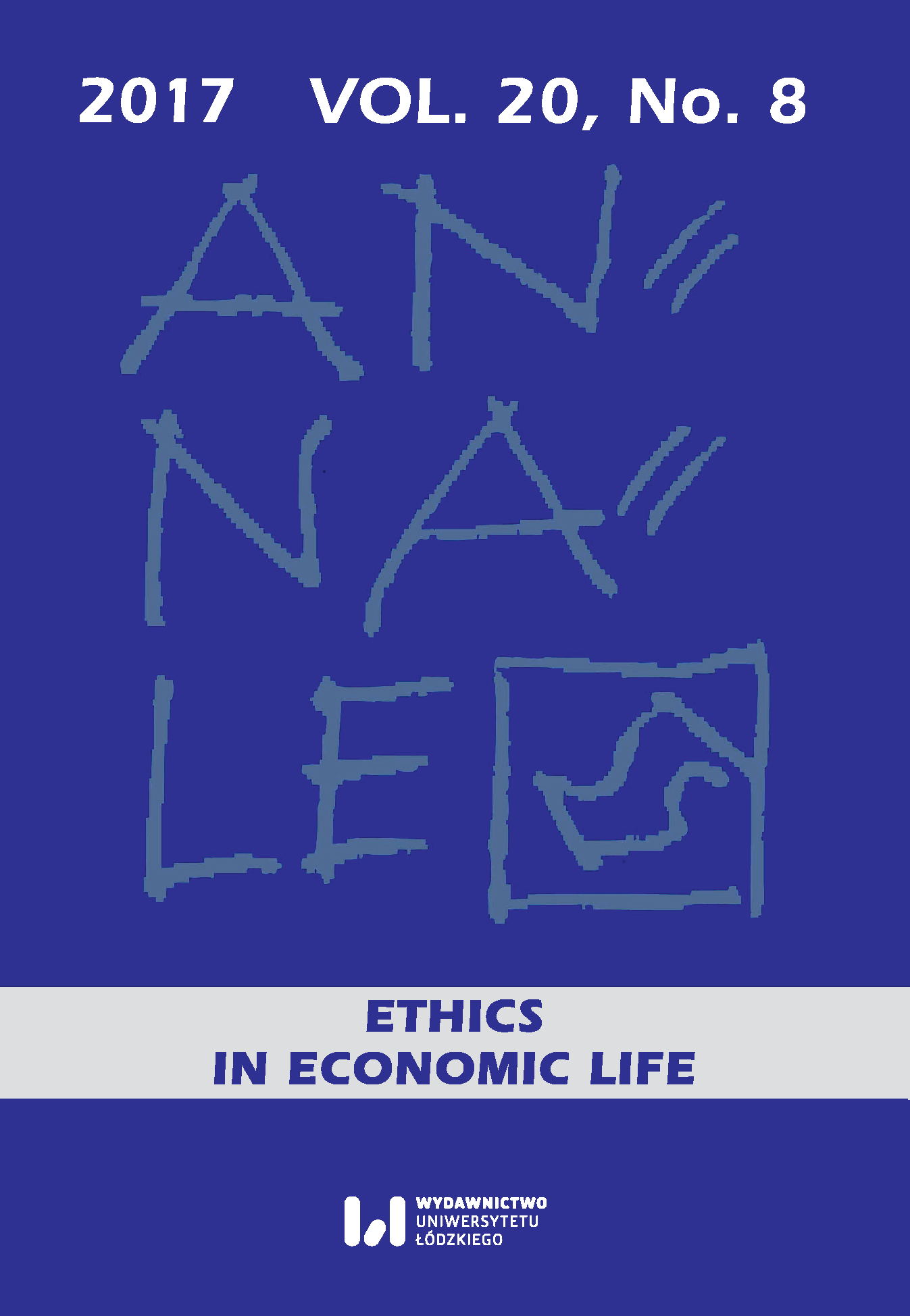The crisis of social market economy in the context of globalisation processes
DOI:
https://doi.org/10.18778/1899-2226.20.8.03Słowa kluczowe:
social market economy, crisis, globalisationAbstrakt
In the context of globalisation processes, the social market economy (SME) is in crisis. A reflection on the features of this model is closely related to the scientific dispute over its designation. It could be perceived as a theory, a political programme, a sort of economic order, a structure, a model or a system of economic and social development. Sometimes it is perceived as an idealistic vision or even a political utopia (Niklas Luhmann). Others (e.g.: Peter Koslowski) argue that this system has come to an end. To support this thesis, they refer to various arguments: a lack of consensus on redistribution, a demographic crisis, the depletion of solidarity resources, an intergenerational imbalance that threatens retirement systems and many others. Despite the range of these arguments, it appears that the SME still has a certain potential that could be freed. Combating difficulties associated with globalisation processes, such as the dominance of the economy over politics, ‘tax starvation’ of the welfare state, marginalisation of trade unions, dispersion of ownership and its detachment from responsibility, “financialisation” of economy, or dominance of ‘casino capitalism’, could help to heal the SME. The crisis in financial markets might be paradoxically an opportunity to return to the ethical foundations of the SME.
Bibliografia
Albert, M. (1994). Kapitalizm kontra kapitalizm. Kraków: Signum.
Google Scholar
Bergsdorf, W. (2010). Über den abnehmenden Utopiebedarf des Postmoderne. Die Neue Ordnung, H. 1, 37–47.
Google Scholar
Dardziński, P. (2004). Społeczna gospodarka rynkowa. In B. Szlachta (Ed.), Słownik społeczny. Kraków: WAM.
Google Scholar
Dembiński, P. H. (2011). Finanse po zawale. Od euforii finansowej do gospodarczego ładu. Warszawa: Studio Emka.
Google Scholar
Dichtl, E., & Issing, O. (Eds.). (1987). Vahlens Großes Wirtschafts Lexikon (Vol. 2). München: C.H. Beck, F. Vahlen.
Google Scholar
Dylus, A. (2011). Kryzys społecznej gospodarki rynkowej w kontekście procesów globalizacji. Annales. Ethics in Economic Life, 14(1), 33–38.
Google Scholar
Goldschmidt, N., Wegner, G., Wohlgemuth, M., & Zweynert, J. (2009, June 19). Was ist und was kann Ordnungsökonomik? Frankfurter Allgemeine Zeitung, 139.
Google Scholar
Kern, B. (1997). Koloß auf tönernen Füßen. Concilium, 2.
Google Scholar
Koslowski, P. (2006, Novermber 11). Das Ende der Sozialen Marktwirtschaft. Frankfurter Allgemeine Zeitung, 263.
Google Scholar
Luhmann, N. (1994). Kapitalismus und Utopie. Merkur, 3, 189–198.
Google Scholar
Sadowski, A. (2008, October 31-November 2). Upadek fałszywych bogów. Rzeczpospolita [Supplement: “Lista 2000. Polskie przedsiębiorstwa”].
Google Scholar
Schlecht, O. (2002). Soziale Marktwirtschaft. In W. Becker, G. Buchstab, A. Doering-Manteuffel, & R. Morsey, Lexikon der Christlichen Demokratie. Paderborn–München–Wien–Zürich: Ferdinand Schöning.
Google Scholar
Pobrania
Opublikowane
Jak cytować
Numer
Dział
Licencja
Prawa autorskie (c) 2017 Annales. Etyka w Życiu Gospodarczym

Utwór dostępny jest na licencji Creative Commons Uznanie autorstwa – Użycie niekomercyjne – Bez utworów zależnych 4.0 Międzynarodowe.









